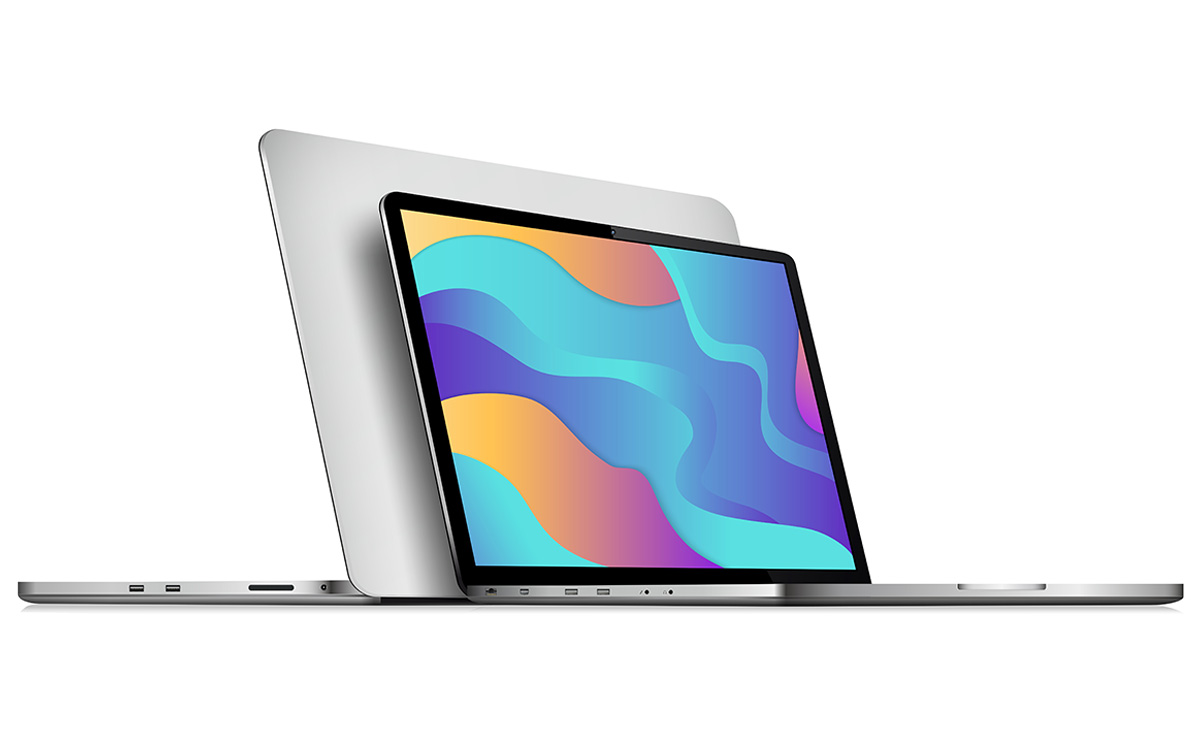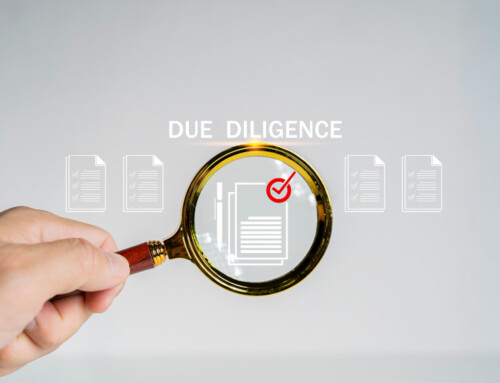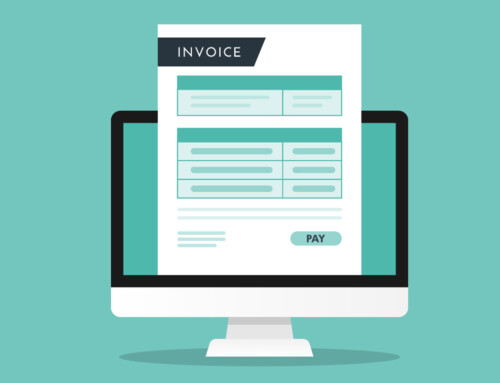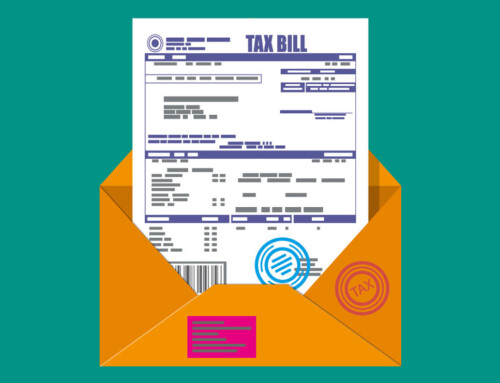Contents
Buying Guide: The Best Laptop for Lawyers in 2024
These days, many legal professionals look for the best system to use for their work. To do so, they need to take care of certain features such as reliability, speed, and other features to choose the best laptop for lawyers. This will also range from high-powered systems to portable ones. Along with power, other options like security, battery, and software compatibility also matter when finding the best laptops for attorneys. Moreover, this guide also helps those small firms to choose the best laptops for small businesses.
What Makes the Best Laptop for Lawyers in 2024?
Selecting the best laptop for lawyers is not a matter of picking the highest-spec device on the market; it requires careful evaluation of specific features that meet the unique demands of legal work. Lawyers need tools that can handle a range of tasks: managing extensive documents, conducting research, joining virtual meetings, and keeping sensitive data secure. This section outlines the technical requirements and practical features that attorneys should prioritize.
Key Specifications to Look For
- Processor and RAM Need for Legal Work: For attorneys, processing power is vital, as legal software and document-intensive tasks can consume significant resources. The best laptops for attorneys should ideally have a multi-core processor—like Intel Core i5 or i7 or AMD Ryzen 5 or 7—to handle demanding applications without lag. RAM is equally crucial; at least 8GB is recommended, though 16GB is preferable for heavy multitasking. This ensures the laptop runs smoothly when managing multiple case files, research windows, and communication platforms simultaneously.
- Storage and SSD Options: Large case files, legal databases, and numerous documents require ample storage. While traditional HDDs offer more storage for less cost, an SSD (Solid State Drive) is recommended for lawyers due to its speed and durability. The best laptops for small business and solo attorneys typically include SSDs, as they allow fast file access and reduced load times—key advantages in a fast-paced legal environment. A minimum of 256GB is suggested, though larger practices may prefer 512GB or more to ensure ample room for file storage.
Battery Life and Portability for Legal Professionals
Portability is another major factor for the best laptop for lawyers, especially those frequently on the move between courtrooms, client meetings, and their offices. A lightweight design that does not sacrifice durability is essential, along with a battery life that can support hours of continuous use without access to a power outlet. Lawyers should look for models with at least 8-10 hours of battery life; longer is ideal for more demanding schedules. For attorneys running small practices, where flexible work environments are common, this balance of battery life and portability directly impacts productivity.
Build Quality and Durability for Daily Use
Legal professionals rely on their laptops for almost every aspect of their job, so the best laptops for attorneys must be robust and long-lasting. Sturdy build quality—such as an aluminum or magnesium alloy chassis—ensures the device withstands daily wear and tear, travel, and frequent handling. Water-resistant keyboards and military-grade durability standards (MIL-STD 810G or similar) are added advantages, especially for attorneys in dynamic settings.
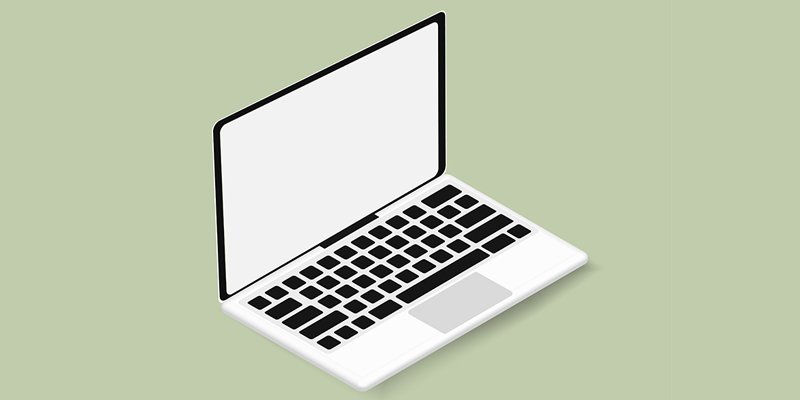
Top Features to Consider When Choosing the Best Laptop for Attorneys
When selecting the best laptop for lawyers, it’s essential to focus on features that ensure seamless, secure, and efficient work. Legal professionals need more than a standard laptop; they need a machine designed for multitasking, data security, and visual clarity. This section breaks down critical features to evaluate when purchasing a laptop tailored for legal practice.
Security and Privacy Options
Biometric Authentication
Data security is paramount for attorneys handling sensitive client information and confidential case files. The best laptops for attorneys often include biometric security features such as fingerprint readers or facial recognition. These options provide an added layer of protection, ensuring that only the authorized user can access the device. Biometric features also save time by allowing quick, secure access, which is particularly useful in environments where attorneys are frequently on the go.
Encryption and Secure Storage
Built-in encryption software is a must for the best laptop for lawyers, as it protects confidential data from unauthorized access. Lawyers should look for laptops with Trusted Platform Module (TPM) support or other hardware-level encryption. In addition, some high-end laptops include features like self-encrypting drives (SEDs) for extra data security. Secure storage options are especially vital for attorneys working in small firms, where cybersecurity resources may be more limited. Laptops with dedicated privacy screens, which limit screen visibility to only the user, are also helpful in maintaining privacy when working in public spaces.
Display Quality and Resolution
Screen Size Preferences for Document Review
Attorneys often spend hours reviewing lengthy documents, making display quality crucial. The best laptops for small businesses and solo practitioners should have screens between 13 and 15 inches, balancing portability with readability. However, larger firms and attorneys who work on detailed visual tasks may benefit from 15- or 16-inch displays, which offer more screen real estate for multitasking and reviewing documents side-by-side.
Resolution Standards for Visual Clarity
A higher-resolution display, ideally Full HD (1080p) or higher, allows for sharper text and clearer images, reducing eye strain during long work hours. This is particularly important for attorneys who frequently review contracts or court filings with small font sizes. Many of the best laptops for attorneys include anti-glare coatings and brightness options for better viewing in various lighting conditions. Higher resolution screens—such as those on laptops with 4K displays—are also an option for those in need of exceptional clarity, though they may impact battery life and increase cost.
Operating Systems: Mac vs. PC – Which is Better for Lawyers?
Selecting the right operating system is a significant choice when investing in the best laptop for lawyers. Each operating system—macOS, Windows, or Linux—has distinct advantages and limitations, depending on the needs of the attorney, the specific legal software required, and the existing tech infrastructure of the practice. For solo practitioners or small firms, choosing an OS that integrates easily with client-facing tools and offers robust security is key.
Advantages of macOS for Legal Professionals
MacBooks are often recognized for their reliability, sleek design, and ease of use, making them a popular choice among lawyers who value a streamlined experience. With macOS, attorneys can expect strong security features, a high-quality build, and a user-friendly interface that integrates well with other Apple devices, which can be advantageous for attorneys already using iPhones or iPads. For attorneys in smaller practices, the best laptops for small businesses often include MacBook models due to their longevity and reduced need for frequent upgrades.
macOS is also known for its robust encryption and data protection features, such as FileVault, which helps protect sensitive files. The Apple ecosystem ensures that lawyers can efficiently transfer documents and data across devices, which is ideal for mobile professionals who need constant access to files and information. However, a potential downside of macOS is limited compatibility with certain legal software that may be designed primarily for Windows. Lawyers relying on specific legal software should verify compatibility with macOS before making a decision.
Advantages of Windows for Law Firms
Windows laptops remain a top choice for law firms and legal professionals who require flexibility and compatibility with a wide range of software. Windows supports many legal and office management software solutions, making it the best laptop for lawyers whose work relies on applications like Microsoft Office, legal research databases, and various practice management tools. Windows devices also offer more variety in terms of hardware options and price points, enabling firms of all sizes to find a machine suited to their budget and performance needs.
For lawyers who need high-performance devices, Windows laptops often come with more powerful processors, higher RAM capacities, and better graphics cards compared to macOS counterparts, making them suitable for multitasking and data-heavy tasks. Moreover, Windows laptops are often favored by small firms that require cost-effective solutions, as the best laptops for small business attorneys can be found at various price points. Many Windows devices also offer more customizable security options, allowing firms to configure their security protocols based on specific practice needs.
Considerations for Linux Users
Although not as common in legal practices, Linux is sometimes chosen by tech-savvy lawyers seeking open-source flexibility and strong security. Linux offers extensive customization, but it may require more technical expertise to operate efficiently. For attorneys managing their own IT needs, Linux can offer a cost-effective and secure platform. However, compatibility with mainstream legal software can be an issue that limits its practicality for many legal practices.
Best Laptops for Attorneys by Practice Area
Different areas of legal practice can place unique demands on a laptop’s capabilities, from document management to courtroom presentations. Selecting the best laptop for lawyers should, therefore, consider not only the device’s general features but also the specific requirements associated with each type of legal work. Here, we explore top laptop choices for attorneys in corporate law, litigation, and solo or small business practices.
Corporate and Business Law
Corporate and business lawyers often handle extensive documentation, contracts, and sensitive client data. The best laptops for attorneys in this field should include robust processing power and ample storage to manage and access large volumes of documents quickly. In particular, a high-performance processor and 16GB of RAM or more are recommended to support seamless multitasking across applications, databases, and communication platforms. This ensures that attorneys can work efficiently on multiple contracts, agreements, and communication threads without delays.
Storage is another priority. Since corporate lawyers often need access to numerous client files and agreements, a laptop with a minimum of 512GB of SSD storage is advised. SSDs allow for quicker file retrieval and reliable performance when accessing extensive case files. For those dealing with particularly high volumes of sensitive information, a device with built-in security features, like biometric authentication and encryption capabilities, will help ensure client data is kept secure and confidential.
Litigation and Trial Lawyers
For litigation and trial attorneys, portability and connectivity are essential features. Litigation work often requires attorneys to move between offices, courtrooms, and client meetings, so the best laptop for lawyers in this field should be lightweight, with long-lasting battery life and flexible connectivity options. A laptop weighing no more than 3 pounds with a battery that can last 10 hours or more is ideal, as it minimizes the need for carrying additional power cords and ensures reliable access during long court sessions or when on the go.
In addition, litigation often involves visual presentations, such as evidence displays or multimedia exhibits. A high-quality display with Full HD or higher resolution is important for clear visuals, and many litigation lawyers benefit from touchscreens, which allow for quicker interactions with documents during court proceedings. Models with HDMI or wireless screen-sharing capabilities can also be advantageous, enabling attorneys to present visuals directly from their laptops to larger screens in the courtroom. The best laptops for attorneys in litigation should combine these presentation-ready features with portability for a versatile, courtroom-friendly tool.
Solo and Small Business Lawyers
Solo practitioners and attorneys in small firms have unique needs, as they often balance legal work with business management responsibilities. The best laptops for small business lawyers should be cost-effective yet powerful enough to handle a wide range of tasks, from case management to client intake and billing. Affordability is a primary consideration, as small business lawyers typically need to invest in reliable technology without excessive expenditure. Laptops that balance performance with price—such as mid-range Windows or even refurbished MacBooks—are often a suitable choice.
In addition to general performance, small firm attorneys benefit from a laptop with good battery life and sufficient connectivity options for remote work. Many solo attorneys work from both office and home, so Wi-Fi 6 and Bluetooth 5.0 connectivity are recommended to support remote access and communication with clients. Devices with fingerprint sensors or TPM (Trusted Platform Module) support can add a layer of security without needing enterprise-level IT resources, making these models particularly practical for small firms.
Best Laptop for Small Business Lawyers: Budget and Mid-Range Options
Small business lawyers, especially those running solo or boutique practices, often need laptops that balance performance and cost without compromising on essential features. Budget and mid-range laptops offer cost-effective solutions, providing reliable performance for attorneys without the premium price tag. This section highlights budget-friendly and mid-range laptops, focusing on models that deliver dependable functionality, security, and portability—essentials for legal professionals managing small practices.
Top Budget-Friendly Laptops for Legal Work
For attorneys starting out or those looking to reduce operational costs, a budget-friendly laptop can be a practical choice. The best laptops for small business lawyers in this category provide necessary features, like ample processing power and solid security, without the expense of high-end models.
- Reliable Performance: Look for models with a minimum of Intel Core i5 or AMD Ryzen 5 processors and 8GB of RAM. These specifications provide sufficient power for handling document processing, research, email, and light multitasking. While budget laptops may not handle intense multitasking as well as their premium counterparts, they are more than adequate for fundamental legal tasks.
- Storage and Security Features: Many budget laptops now come with SSDs, which offer faster load times than traditional hard drives. A 256GB SSD is usually enough for solo or small practice attorneys who need quick access to client files and basic legal applications. Additionally, even some lower-cost laptops now offer security features like fingerprint readers, a valuable option for protecting client data without investing in high-end enterprise solutions.
Mid-Range Laptops Balancing Cost and Performance
Mid-range laptops are an excellent option for attorneys who need more power than a basic model but want to avoid the higher costs of premium devices. The best laptops for attorneys in this category strike a balance, offering enhanced processing power, increased storage, and additional security features—making them suitable for small firms that handle diverse legal tasks and moderate workloads.
- Enhanced Processing Power: Many mid-range laptops feature Intel Core i7 or AMD Ryzen 7 processors and at least 16GB of RAM, making them well-suited for lawyers who often juggle multiple applications, from case management software to online research databases. This combination of processing power and memory allows for smooth multitasking, which is particularly valuable for attorneys who rely on various software tools and communication channels simultaneously.
- Ample Storage and Security: For attorneys in small firms who need additional storage, mid-range models often come with 512GB SSDs or higher, providing more than enough space for document-heavy work. In addition, many mid-range options include Trusted Platform Module (TPM) support, which offers an extra layer of security by encrypting sensitive information directly on the hardware. Some mid-range laptops also feature dedicated privacy screens, which can help attorneys maintain confidentiality while working in public or shared spaces.
Balancing Quality with Affordability
The best laptop for lawyers in small practices needs to deliver quality without excessive expense. For attorneys managing their own firms, maintaining overhead costs is crucial, so investing in a laptop that can handle essential legal tasks efficiently is a priority. Both budget-friendly and mid-range laptops offer flexibility, allowing small business lawyers to choose devices that fit their financial plans while supporting productive work.
Alternative Options: Tablets, 2-in-1s, and Chromebooks for Lawyers
In addition to traditional laptops, some attorneys may benefit from exploring alternative options like tablets, 2-in-1 devices, and Chromebooks. While each option has limitations compared to conventional laptops, they can offer unique advantages depending on the specific needs of the practice. Here, we examine the potential of each type of device as the best laptop for lawyers with unique preferences or those in need of flexible, mobile solutions.
Advantages of 2-in-1 Laptops for Versatile Use
2-in-1 laptops, which combine the functionality of a laptop with the portability of a tablet, are increasingly popular among legal professionals who require flexibility. These devices typically feature a touchscreen and a keyboard that can detach or fold back, allowing attorneys to switch between laptop and tablet modes. The best laptops for attorneys looking for versatility should include 2-in-1 models with powerful processors, ample RAM, and solid battery life to support work in both modes.
For lawyers frequently moving between office spaces, client meetings, and courtrooms, 2-in-1s can be particularly beneficial. In tablet mode, these devices are excellent for reading documents or presenting evidence in court. When more substantial tasks arise, attorneys can switch to laptop mode for typing and multitasking. However, attorneys should look for models with at least an Intel Core i5 processor and 8GB of RAM to ensure smooth performance when handling document-intensive tasks. Notable 2-in-1 models, such as the Microsoft Surface Pro, also offer security features like Windows Hello facial recognition, which provides convenient, secure access.
Pros and Cons of Tablets for Legal Professionals
While tablets like the iPad Pro or Samsung Galaxy Tab have advanced significantly, they are often best suited as secondary devices rather than replacements for the best laptop for lawyers. Tablets excel in portability and are ideal for note-taking, quick research, and accessing client files on the go. Their lightweight design makes them easy to carry, and they often feature long battery life, allowing attorneys to work for extended periods without needing to recharge.
However, tablets may lack the processing power and multitasking capability necessary for document-intensive legal work, especially when using complex software. While many tablets support accessories like detachable keyboards and styluses, they still do not match the full functionality of a laptop. That said, tablets can be useful supplementary devices for attorneys who prefer to keep their primary work on a traditional laptop but want a lighter, more portable device for travel or meetings. Tablets also work well for solo practitioners or small firms as an additional, affordable tool that can enhance workflow without requiring a large investment.
Using Chromebooks for Law Practice: Is It Feasible?
Chromebooks represent an affordable alternative to traditional laptops, and they operate primarily on Google’s Chrome OS. While they may lack the full capabilities of Windows or macOS devices, the best laptops for small business attorneys who prioritize cost and simplicity can sometimes include Chromebooks. Chromebooks are generally less expensive and offer a straightforward, browser-focused environment that works well for tasks like email, document editing, and web-based research.
For attorneys in smaller practices with basic computing needs, a Chromebook can be a feasible choice. However, Chromebooks do have notable limitations. They are not designed for intensive multitasking or high-powered software, which can be a drawback for legal professionals who rely on desktop applications for document management, case management, or research databases. Nonetheless, with support for Android apps and cloud-based tools, Chromebooks can handle many basic functions required by small firms, especially if the practice primarily relies on web-based legal solutions.
Powering Legal Practice: The Best Laptops for Attorneys in 2024
Selecting the best laptop for lawyers means finding the right balance of performance, portability, and security tailored to each attorney’s unique needs. Whether working in corporate law, litigation, or managing a solo practice, having the right laptop is essential for efficiency and data protection. From budget-friendly models to high-performance workstations, the best laptops for attorneys should support case management, document review, and secure communication while fitting seamlessly into daily workflows.
For small business attorneys, where budgets and versatility are key, laptops that blend affordability with reliable functionality make a significant impact. Investing in the best laptops for small business allows attorneys to handle their day-to-day operations smoothly, ensuring a secure and productive work environment. With a well-chosen laptop, lawyers can focus on what matters most—providing exceptional service and support to their clients. If you are ready to enhance your legal practice, explore a laptop that matches your professional needs for 2024 and beyond.
FAQ
1. What is the best laptop for lawyers who frequently travel?
For attorneys on the move, a lightweight laptop with long battery life, such as the MacBook Air (M2) or Lenovo ThinkPad X1 Carbon, offers the ideal balance of portability and performance, making it easy to work from anywhere without frequent recharging.
2. Are there budget-friendly laptops that meet the needs of solo or small business lawyers?
Yes, several budget-friendly options provide reliable performance for solo practitioners and small firms. The Acer Swift 3 and certain mid-range models of the HP Spectre x360 offer excellent value with solid processing power, adequate storage, and essential security features.
3. Should I choose a Mac or a Windows laptop for legal work?
Both are excellent options, depending on your needs. Macs are known for ease of use, integrated security, and reliability, while Windows laptops often offer more variety, customizability, and compatibility with specific legal software. Consider your workflow and software preferences before deciding.
4. What are the top security features to look for in a laptop for attorneys?
Look for biometric security (like fingerprint scanners), hardware-level encryption (such as TPM), and secure storage options. Laptops with these features ensure that sensitive client data stays protected and confidential, crucial for legal professionals handling private information.
Disclaimer: The content provided on this blog is for informational purposes only and does not constitute legal, financial, or professional advice.
